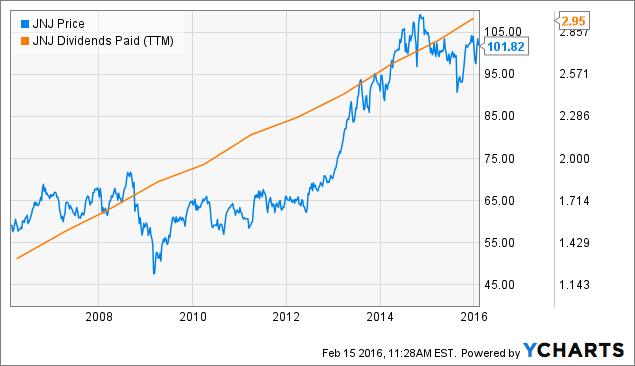Are Dividends Doomed?
Due to its over-reliance on dividends, which might stop growing or even disappear completely, Dividend Growth Investing is a fatally flawed strategy. In an article published over the weekend, the New York Times suggests as much (without ever specifically mentioning DGI).
The article, headlined Dividends, Wall Street's Battered Status Symbol, starts by saying Coca-Cola (NYSE:KO) has increased dividends for 50 years and has paid income to shareholders since 1920. Therefore, Times journalist Jeff Sommer says, it's "unthinkable" for Coke to cut divvies. He goes on to write:
Many other companies would love to say the same, but they can't. Companies hate to cut dividends because they know that such an announcement would hurt their reputation with investors. Yet in a difficult financial environment, startlingly large numbers of corporations are slashing dividends anyway. That trend is disturbing.

The article then mentions grim numbers compiled by Howard Silverblatt, senior index analyst at S&P Dow Jones Indices: In 2015, 394 companies cut dividends, a 38% increase over 2014 and even 23% more than in 2008, in the midst of the Great Recession.
The only year in recent history with more dividend cuts was in 2009, when the world was staggering through a great financial crisis. A total of 527 companies trimmed dividends that year, Mr. Silverblatt's data shows. Coca-Cola and other dividend-paying blue chips like IBM and McDonald's were under severe stress in those days, too, but their financial resources were deep enough to allow them to keep the dividend stream fully flowing.They were happy exceptions. A host of other major companies - like Alcoa, General Electric, Dow Chemical, Macy's, Sotheby's, JPMorgan Chase and Bank of America - decided, under considerable pressure, that it was time to capitulate. They all cut their dividends.
Exceptions? Really?
The article's wording makes it seem Coca-Cola, IBM (NYSE:IBM) and McDonald's (NYSE:MCD) were among a very small group of "happy exceptions" to the dividend-cutting wave of 2009, while General Electric (NYSE:GE), Bank of America (NYSE:BAC) and other income-slashers represented the norm.
In reality, KO, IBM and MCD were part of the majority. Such blue-chip, income-growing companies indeed did have - using the author's own words - "financial resources deep enough to allow them to keep the dividend stream fully flowing" through the worst financial crisis since the Great Depression. Which is why DGI practitioners tend to invest in such companies.

Seeking Alpha contributor David Fish has created and maintained the official list of Dividend Champions, Contenders and Challengers - companies that have raised dividends for at least 25, 10 and 5 years, respectively. According to David, more than 70% of the companies that qualified as Champions going into the recession kept raising dividends. Another 9% froze divvies but did not cut them.
Furthermore, at the end of last month, there were 106 Champions and 251 Contenders. Those 357 companies have been growing dividends for at least 10 years, meaning they obviously weren't cutting them from 2007-2009.
That seems to be more than a handful of "happy exceptions," no? And I think it's safe to say those 357 include the most popular companies owned by DGI proponents.
We're Doomed! Doomed, I Say!
Following is a fairly important passage tucked into the ninth paragraph of the Times article. (I have bolded what I considered most relevant.)
The situation today isn't nearly as dire for most companies as it was in 2009, and the stock market and the economy generally appear to be much stronger. Nor are all companies cutting dividends. In fact, overall, corporate dividends rose last year and, barring a severe economic shock, they are likely to do so in 2016. So are stock buybacks, the other widely used method of returning cash to investors.
In other words, just a few paragraphs after the author's ominous warning of an impending Dividend Doomsday - Cuts! Eliminations! Run for the hills! - he acknowledges that dividends actually have been rising and almost certainly will continue growing.
Having dealt a blow to his own thesis, Sommer steers the conversation to "pockets of pain... especially in the energy and commodities sectors." He names troubled oil companies ConocoPhillips (NYSE:COP) and Anadarko Petroleum (NYSE:APC) and mining giant Rio Tinto (NYSE:RIO).
Well yes, everybody knows that those sectors are under severe pressure - and that far more than dividends  have been lost. Investors who use strategies other than DGI have been crushed by declining share prices, too. (And do I even need to mention that neither APC nor RIO are exactly classic DGI portfolio holdings?)
have been lost. Investors who use strategies other than DGI have been crushed by declining share prices, too. (And do I even need to mention that neither APC nor RIO are exactly classic DGI portfolio holdings?)
 have been lost. Investors who use strategies other than DGI have been crushed by declining share prices, too. (And do I even need to mention that neither APC nor RIO are exactly classic DGI portfolio holdings?)
have been lost. Investors who use strategies other than DGI have been crushed by declining share prices, too. (And do I even need to mention that neither APC nor RIO are exactly classic DGI portfolio holdings?)
The article also talks about buybacks being reduced, and uses Exxon Mobil (NYSE:XOM) as a prime example.
Consider Exxon Mobil's moves early this month. They were drawn from the classic corporate finance playbook. It said that dividends were a "priority," and unlike Conoco, it said that it would maintain them and preserve its ability to make important capital investments during the oil price downturn.Once the biggest practitioner of buybacks in the stock market, Exxon has been paring them for the last two years, and announced that it would reduce them more radically to conserve cash. Exxon's shares have actually risen slightly this month while Conoco's have fallen sharply.
Most Dividend Growth investors I know prefer income to buybacks. Most also considered XOM a higher-quality company than COP even before the latter slashed its dividend 66%. (Disclosure: I dumped COP from my personal portfolio at $47.59/share on Jan. 4, before its divvy cut and accompanying price freefall. Both COP and XOM do remain part of the Dividend Growth 50 portfolio I oversee.)
What About Indexing?
Sommer extols the wonders of indexing, so that "even if dividend cuts portend market declines, you can prosper if you can endure some pain." He cites the S&P 500 Index's (NYSEARCA:SPY) 200% return since March 2009 without mentioning the 57% drawdown of the preceding couple of years.
The Times writer adds this interesting tidbit:
Indexes of stocks with high and stable dividends did even better. That may be because steady dividend payers are more solid. It may simply be that investors prefer dividends. We don't really know.
Let that one roll around in your brain for a few moments. Even as he gushes about SPY, the author must admit the advantages of owning the very companies that populate DGI portfolios.
Sommer concludes:
But people who have truly relied on dividends for income may have to face a sad truth. Dividends aren't bonds, and they may be cut at a company's discretion. So love dividends if you must. Just don't count on them.
It's absolutely true that DGI does not offer a money-back guarantee. Of course, the wording of that paragraph could have been altered slightly to discuss the perils and pitfalls of any investing strategy:
But people who have truly relied on share-price appreciation to fund their lifestyles may have to face a sad truth. Stocks - and even stock index funds - aren't bonds, and they may sustain severe, prolonged share-price reductions. So love Modern Portfolio Theory (or total return or growth or momentum or contrarian or technical analysis or day trading or Strategy X) if you must. Just don't count on it.
Emphasizing The Probable
Most DGI practitioners are realists. We know earnings must increase over time if dividends also are to grow. Some of us have learned hard lessons taught by GE (NYSE:GE) and Alcoa (NYSE:AA)... but we also have benefited over time from Altria (NYSE:MO) and Johnson & Johnson (NYSE:JNJ). We realize the importance of diversification, of quality and of valuation.

We acknowledge that JNJ could suffer through such horrible times that it would end its decades-long string of dividend growth, but we strongly believe the probabilities are on our side. That's why the core of my portfolio includes the likes of Johnson & Johnson, McDonald's, Coca-Cola, Altria, 3M (NYSE:MMM), AT&T (NYSE:T), Procter & Gamble (NYSE:PG) and General Mills (NYSE:GIS). The notion of them slashing their dividends is, as New York Times writer Jeff Sommer might say, "unthinkable."
I wrote this article myself, and it expresses my own opinions. I am not receiving compensation for it (other than from Seeking Alpha). I have no business relationship with any company whose stock is mentioned in this article.
Good articles, Have you heard of Mr Benjamin, Email: 247officedept@gmail.com --WhatsApp Contact:+1-9893943740-- who work with funding service they grant me loan of $95,000.00 to launch my business and I have been paying them annually for two years now and I still have 2 years left although I enjoy working with them because they are genuine Loan lender who can give you any kind of loan.
ตอบลบ